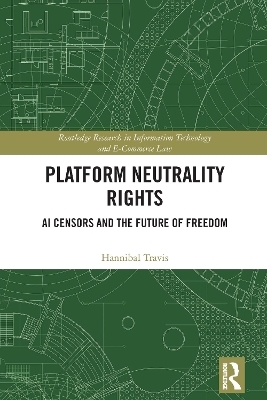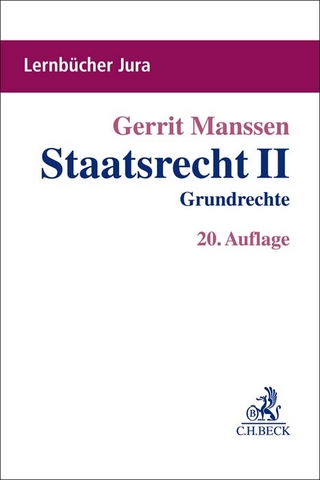
Platform Neutrality Rights
Routledge (Verlag)
978-1-032-75819-0 (ISBN)
This book analyzes questions of platform bias, algorithmic filtering and ranking of Internet speech, and declining perceptions of online freedom.
Courts have intervened against unfair platforms in important cases, but they have deferred to private sector decisions in many others, particularly in the United States. The First Amendment, human rights law, competition law, Section 230 of the Communications Decency Act, and an array of state and foreign laws address bad faith conduct by Internet platforms or other commercial actors. Arguing that the problem of platform neutrality is similar to the net neutrality problem, the book discusses the assault on freedom of speech that emerges from public-private partnerships. The book draws parallels between U.S. constitutional and statutory doctrines relating to shared spaces and the teachings of international human rights bodies relating to the responsibilities of private actors. It also connects the dots between new rights to appeal account or post removals under the Digital Services Act of the European Union and a variety of fair treatment obligations of platforms under American and European competition laws, “public accommodations” laws, and public utilities laws. Analyzing artificial intelligence (AI) regulation from the point of view of social-media and video-platform users, the book explores overlaps between European and U.S. efforts to limit algorithmic censorship or “shadow-banning”.
The book will be of interest to students and scholars in the field of cyberlaw, the law of emerging technologies and AI law.
Hannibal Travis has taught and practiced Internet law and the law governing authors and content creators for nearly 25 years. His work employs economic theory, historical research, and political philosophy to articulate individual rights, especially in the context of expanding private and public power over cultural and religious expression. He has advised entrepreneurs in disputes with alleged monopolists and unfair competitors as well as content creators in the Internet search engine, video game console, and professional sports industries. His research has appeared in books from Cambridge University Press, Oxford University Press, and Routledge.
Preface
Introduction
1. Swartz’s Law: The Rise of AI Censors
2. Carceral Communications Law: Freedom and Censors in the Public Sphere
3. Coordinated Inauthentic Activity: Private Police and Political Dissent
4. The Freedom of Reach: Kingly Power Versus Knowledge Commons
5. Locking the Web “Open”: Paths to a Neutral Online Environment
Conclusion: Authoritarianism and Freedom in Technocracy
| Erscheinungsdatum | 09.07.2024 |
|---|---|
| Reihe/Serie | Routledge Research in Information Technology and E-Commerce Law |
| Zusatzinfo | 1 Line drawings, black and white; 1 Illustrations, black and white |
| Verlagsort | London |
| Sprache | englisch |
| Maße | 156 x 234 mm |
| Gewicht | 650 g |
| Themenwelt | Recht / Steuern ► Allgemeines / Lexika |
| Recht / Steuern ► EU / Internationales Recht | |
| Recht / Steuern ► Öffentliches Recht ► Verfassungsrecht | |
| Recht / Steuern ► Privatrecht / Bürgerliches Recht ► IT-Recht | |
| Sozialwissenschaften ► Kommunikation / Medien ► Kommunikationswissenschaft | |
| Sozialwissenschaften ► Politik / Verwaltung | |
| Wirtschaft ► Volkswirtschaftslehre | |
| ISBN-10 | 1-032-75819-8 / 1032758198 |
| ISBN-13 | 978-1-032-75819-0 / 9781032758190 |
| Zustand | Neuware |
| Informationen gemäß Produktsicherheitsverordnung (GPSR) | |
| Haben Sie eine Frage zum Produkt? |
aus dem Bereich


